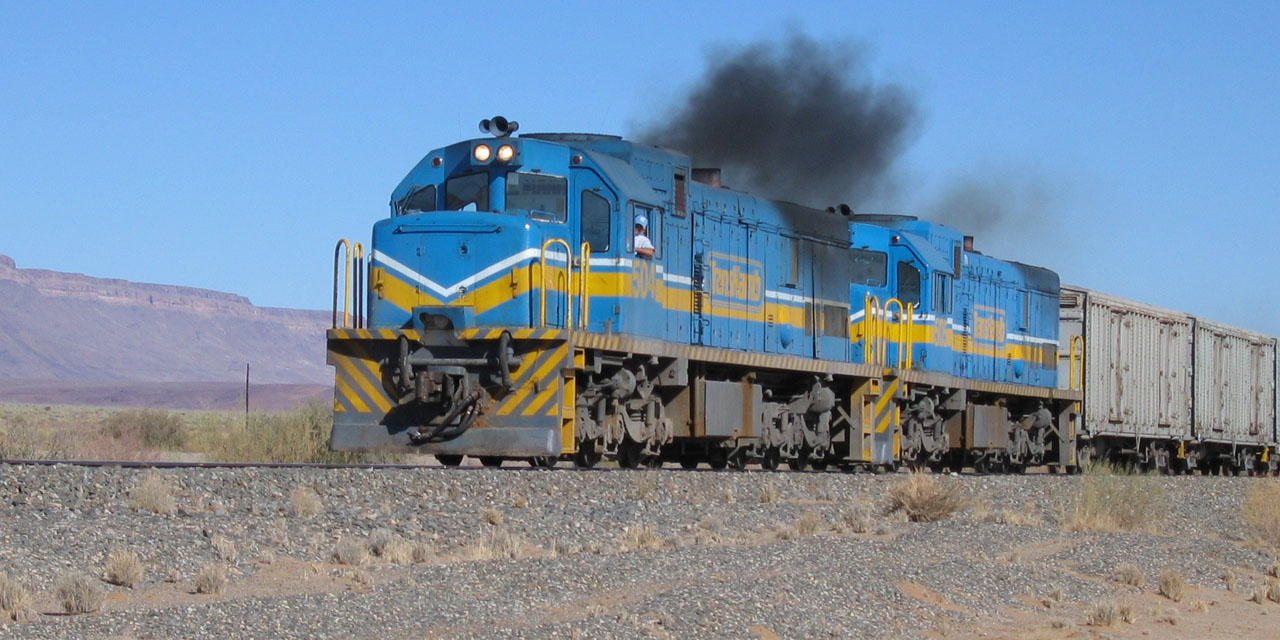Obrein Simasiku
TransNamib workers are expected to vote for a strike on 12 August, despite the parastatal in serious financial dire straits.
CEO Johnny Smith, maintains that TransNamib is no financial position to give any salary increments.
He pleaded with the union and workers to evaluate and understand the dire consequences the industrial action will have on a limping entity.
“Throughout our negotiations we have been opening our books to show them where we stand. We implore our employees to remember that after much grappling we have secured the needed funding to improve our capacity in terms of rolling stock,” said Smith.
He hopes in the next 9 to 12 months the company might improve its financial position by utilising funding from the government this year to improve rolling stock capacity and infrastructure conditions. But he does not give any assurance for future salary adjustments. Smith added that 12 locomotives will be refurbished and also acquire new ones, to increase the number of runs and allow more freight to be carried without having to experience breakdown.
TransNamib management is however pleading with the workers and union to be cognizant that the strike will jeopardise its efforts to stay afloat and attain stability. According to CEO, TransNamib is making losses of N$10 million monthly, thus the strike will put a final nail in the coffin.
The secret ballot voting comes after TransNamib approached the High Court last month on an urgent basis after they were issued with a striking notice on 13 July by bargaining union Namibia Transport and Allied Workers Union (Natau).
The strike was to be held on 18 July but it was deferred following the court order.
So far through retrenchment drive 70 people have opted for voluntary exit packages. Despite this, Smith, says the figure is not even half of what they expected.
Failed strategy
TransNamib needed about N$2.5 billion to implement some strategies that would have made the national rail carrier grow in width and bound. The Integrated Strategic Business Plan which was adopted in 2018, with the aim of turning the financially struggling rail parastatal into a profitable entity, has been derailed due to delays in securing funding.
“Truth be told, any strategy to be successful needs resources and one of the key impediments on the slow progress of the implementation, is the time elapsed to secure the funding of N$2.5 billion. The ISBP is delayed with 5 years. It was agreed with the Ministry of Public Enterprises and Ministry of Finance, to rework the ISBP and meet all the conditions of the Development Bank of South Africa and Development Bank of Namibia, which provided an offer of N$2.6 billion over the next 6 months,” said TransNamib board chairperson Lionel Mathews.
As it stands, the source of finance to execute the New TransNamib Mandate, would primarily come from Recapitalisation, Selling of Non-Core Assets, GRN Subsidies and Vendor Finance, the management reasoned.
“Obviously, any funding of this nature comes with stringent due diligence and conditions. The CEO and his team are hard at work to meet the deadlines and reach financial closure. One of the conditions was the approval by the Ministry of Finance. Further note that, the restructuring of TransNamib enjoys the full support of ministry of finance, public enterprises as that of Works and Transport.”
The chairman added that an assessment by treasury had highlighted some risks and concerns, and thus suggested that funding should be split and given in portions. On that note he said, Smith, and his team is exploring options to close the first N$600 million or so, to get the restructuring and turnaround going.
Additionally, Mathews said, N$175 million have been secured from the ministry of finance of which has partly been disbursed, and this is one of the short-term goals to revive the failing company.
“TransNamib has lost a significant value of cargo to road transport over the years and gaining back just 10%-20% will yield business profitability combined with consistent and stable customer service and optimizing operations and engineering and a symbiotic operational strategy,” said an optimistic Mathews.




